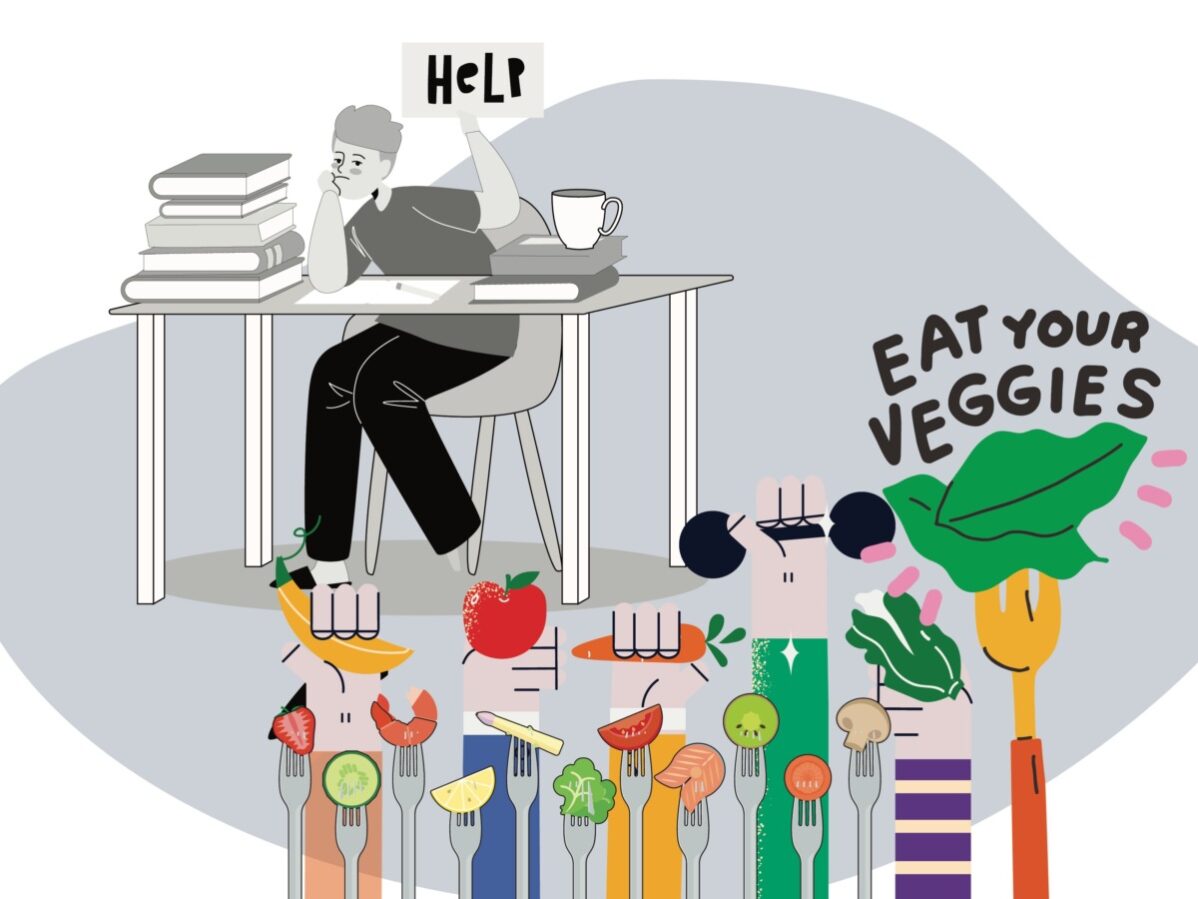Avoid giving in to stress eating by picking the healthier option
Food is an important part of our lives. We eat three meals a day, with the occasional snack in between.
Our eating schedule may vary depending on how our daily routine changes.
Do you have a regular mealtime every day? Do you notice any differences in your eating habits when your schedule is hectic?
Heavily packed schedules can increase our stress level. When we are stressed, we find ways that are most accessible for us to cope with it.
One of them is food.
Food is one of the rewards we can give ourselves. For example, treating ourselves to chocolate cake after a long day may seem reasonable.
Although consuming high-sugar or high-fat food occasionally is not a problem, resorting to refined sugar and lipids under stress, whether consciously or unconsciously, is a big no to our health.
Many of you may have heard of the term “stress eating.”
What exactly is “stress eating”?
When our body perceives stress, a hormone called cortisol is released by the adrenal glands. This hormone, cortisol, affects our food preferences. Numerous studies suggested that physical or emotional distress causes an increase in high-fat, high-sugar food intake, or both.
These “comfort foods” for stress push people towards overeating and thus unfavorable weight gain.
Fortunately, there are different ways for students to maintain healthy eating habits during stressful times.
To effectively manage eating under stress is to maintain our energy level against all odds.
Firstly, it is important to avoid quick, sugary fixes.
It is understandable that whenever you need an energy boost, grabbing sweets like cookies is a norm. Refined sugar can provide an energy boost in a short period of time but cause energy slump afterwards.
Instead, try to consume natural sugar from whole foods like fruits.
Secondly, keeping caffeine intake at a moderate level and avoiding over consumption of caffeinated beverages is important. Extensive caffeine intake can increase our anxiety level and thus intensify bodily stress responses.
The key here is to make sure you have easy access to water and keep yourselves hydrated.
Finally, stock up your kitchen with healthy food and snack choices especially when your schedule is packed. Remember to include whole grains, protein, fruits, and vegetables.
Beyond the above tips on how to maintain our energy levels under stressful times, food consumption also plays a role in balancing our hormonal secretion. There are certain types of food that can help us relieve stress.
Anti-inflammatory foods are your best friend to go through stress.
Foods that are high in vitamin B, like beef, chicken, and eggs, are helpful in lowering the cortisol level in our bodies which we all know is a stress hormone.
Foods that are high in Omega-3 fatty acid are also effective in reducing inflammation. Omega-3 from both meat and plant sources work equally well. Fish like salmon, sardines, tuna and shellfish like oysters, are all good fats. For those who are looking for plant-based fatty acid, avocados, chia seeds, flax seeds, and walnuts are great alternatives.
Another hero to mention is magnesium-rich foods. Magnesium is largely effective not only in minimizing inflammation, but also breaking down cortisol and relaxing our body and mind.
Magnesium is found in some of the most popular foods, including dark chocolate, bananas, avocados, broccoli and spinach. They are all easily accessible and versatile in cooking.
No doubt, we all know home-cooked meals are healthier than takeaways. Yet, it can be a hustle to do all the food preparation, cooking and cleaning, especially when we are overloaded with assignments and shifts.
Fortunately, there are ways to prepare meals in an efficient way.
Allocate time once a week to prepare ready-to-cook or cooked ingredients. Keeping cooked meat and cut veggies on hand can reduce the time you need to cook a meal from scratch. It seems less of a chore and thus motivates you to cook or even simpler, just reheat.
What you need is to take a break from your busy schedule and prepare nutritious food to keep your body energized throughout the week. Spending one to two hours to wash and cut veggies, cook meat, grains and store them in the fridge.
Making double batches is a smart way to even reduce the frequency of cooking. Cooking two or three meals at once and storing them for lunch or dinner the next day.
Being smart at choosing what we eat can help relieve stress.
Though we cannot control our environment, we are still able to make decisions that are good for our health.
After all, solely relying on food to de-stress would not be effective. Sleeping habits and exercise also count.


